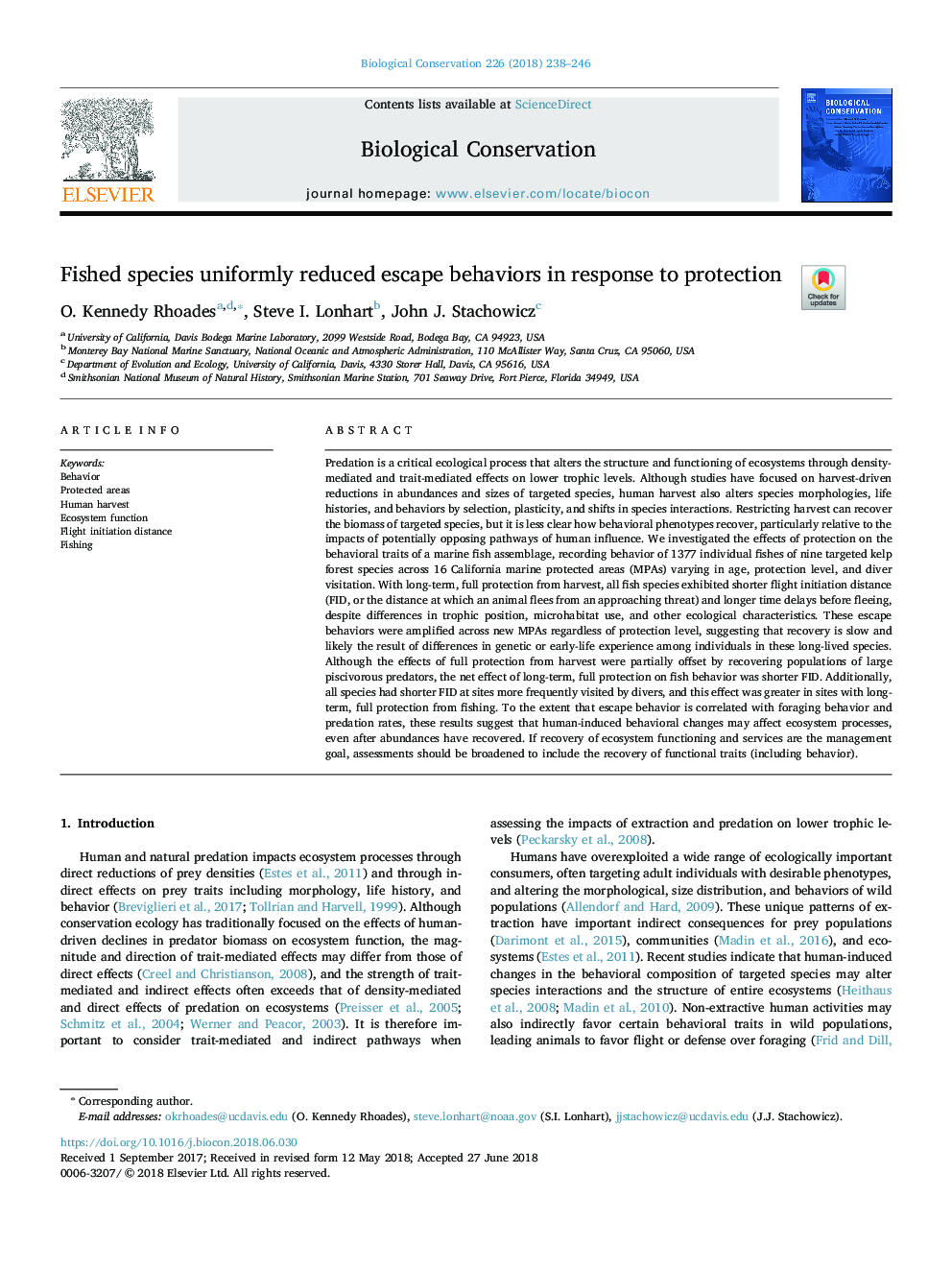| کد مقاله | کد نشریه | سال انتشار | مقاله انگلیسی | نسخه تمام متن |
|---|---|---|---|---|
| 8847112 | 1617879 | 2018 | 9 صفحه PDF | دانلود رایگان |
عنوان انگلیسی مقاله ISI
Fished species uniformly reduced escape behaviors in response to protection
ترجمه فارسی عنوان
گونه های ماهیگیری به صورت یکنواخت رفتارهای فرار را در پاسخ به حفاظت کاهش دادند
دانلود مقاله + سفارش ترجمه
دانلود مقاله ISI انگلیسی
رایگان برای ایرانیان
کلمات کلیدی
رفتار - اخلاق، مناطق حفاظت شده، برداشت انسان، عملکرد اکوسیستم، پرواز شروع فاصله، صید ماهی،
موضوعات مرتبط
علوم زیستی و بیوفناوری
علوم کشاورزی و بیولوژیک
بوم شناسی، تکامل، رفتار و سامانه شناسی
چکیده انگلیسی
Predation is a critical ecological process that alters the structure and functioning of ecosystems through density-mediated and trait-mediated effects on lower trophic levels. Although studies have focused on harvest-driven reductions in abundances and sizes of targeted species, human harvest also alters species morphologies, life histories, and behaviors by selection, plasticity, and shifts in species interactions. Restricting harvest can recover the biomass of targeted species, but it is less clear how behavioral phenotypes recover, particularly relative to the impacts of potentially opposing pathways of human influence. We investigated the effects of protection on the behavioral traits of a marine fish assemblage, recording behavior of 1377 individual fishes of nine targeted kelp forest species across 16 California marine protected areas (MPAs) varying in age, protection level, and diver visitation. With long-term, full protection from harvest, all fish species exhibited shorter flight initiation distance (FID, or the distance at which an animal flees from an approaching threat) and longer time delays before fleeing, despite differences in trophic position, microhabitat use, and other ecological characteristics. These escape behaviors were amplified across new MPAs regardless of protection level, suggesting that recovery is slow and likely the result of differences in genetic or early-life experience among individuals in these long-lived species. Although the effects of full protection from harvest were partially offset by recovering populations of large piscivorous predators, the net effect of long-term, full protection on fish behavior was shorter FID. Additionally, all species had shorter FID at sites more frequently visited by divers, and this effect was greater in sites with long-term, full protection from fishing. To the extent that escape behavior is correlated with foraging behavior and predation rates, these results suggest that human-induced behavioral changes may affect ecosystem processes, even after abundances have recovered. If recovery of ecosystem functioning and services are the management goal, assessments should be broadened to include the recovery of functional traits (including behavior).
ناشر
Database: Elsevier - ScienceDirect (ساینس دایرکت)
Journal: Biological Conservation - Volume 226, October 2018, Pages 238-246
Journal: Biological Conservation - Volume 226, October 2018, Pages 238-246
نویسندگان
O. Kennedy Rhoades, Steve I. Lonhart, John J. Stachowicz,
